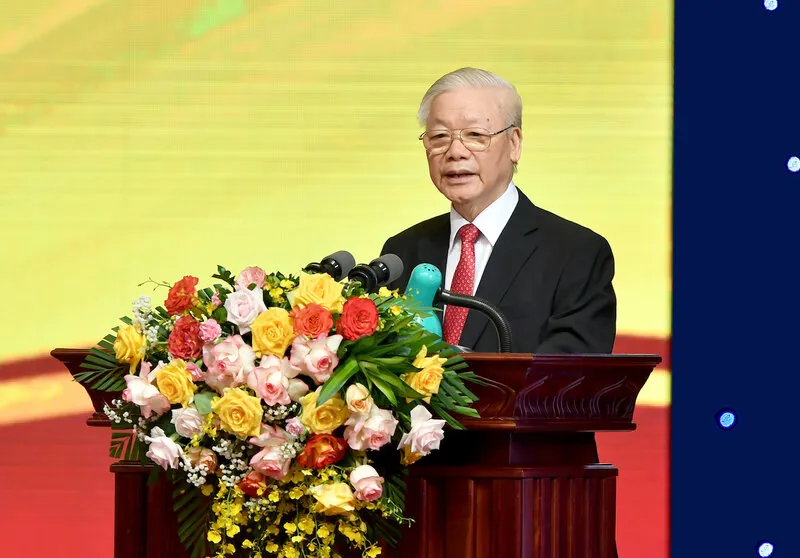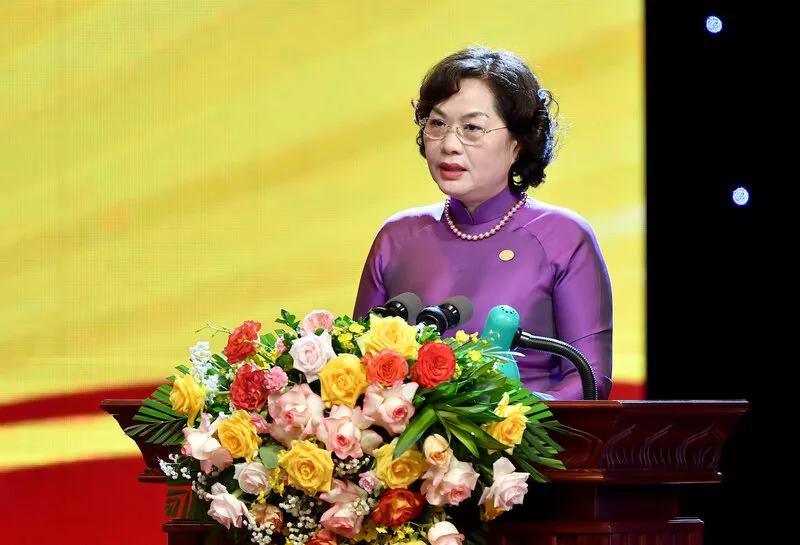Banking sector to maintain role as veins for economic growth: Party chief
Monetary policy should be maneuvered in a flexible and active manner to ensure sustainable growth and stability of both monetary and foreign-exchange markets, said the Party chief Nguyen Phu Trong.
As a “veins” for the economy, the banking sector should continue to push for a comprehensive reform to better support the country’s process of modernization and industrialization.
| General Secretary of the Communist Party of Vietnam Nguyen Phu Trong at the ceremony. Source: VGP |
General Secretary of the Communist Party of Vietnam Nguyen Phu Trong gave the remarks at a ceremony marking 70th anniversary of Vietnam’s banking sector today [May 5].
“Priorities for the sector is to control inflation, stabilize macro-economic conditions and meet credit demand as the country continues pushing for greater socio-economic development,” said Trong, adding these tasks are of significance during the period of economic recession as a result of the Covid-19 pandemic.
The Party chief referred to the resolution of the 13th National Party Congress on the orientation for economic growth, saying the State Bank of Vietnam (SBV) should run monetary policy in a flexible and active manner along with other policies to ensure sustainable growth and stability of both monetary and foreign-exchange markets.
While the banking sector remains a major source of capital supply for the economy, Trong noted SBV’s policies would have major impacts on economic security and public order.
As the local economy is still struggling with Covid-19 impacts, Trong lauded the banks’ efforts in keeping a low-interest rate environment and timely provide capital to help enterprises recover from the current crisis.
Referring to ongoing efforts to restructure credit institutions and settle bad debts in the system, Trong called for banks to catch up with new development trends to reach regional and international levels.
“Perfecting legal framework and efficiency in operation are key to safeguard financial market stability and prevent risks in banks’ operation,” Trong continued.
| SBV's Governor Nguyen Thi Hong |
At the event, SBV’s Governor Nguyen Thi Hong said the central bank is committed to further enhancing efficiency of monetary policy management for greater economic resilience against external shocks.
“Along with efforts to deepen international economic integration, macro-economic stability is key to enhance the country’s economic independence,” Hong stated.
Hong said the main objectives of SBV’s plan in restructuring the banking sector is to adopt international practices into banks’ operation for higher transparency and efficiency.
“In a rapidly changing world, a revised legal system for banks would promote the development of new services to better serve enterprises and people, in turn contributing to the process of national digital transformation and digital economic development,” Hong concluded.














